Lawn Disease Control Services in Minneapolis
Something doesn’t look right with your Minnesota lawn. Maybe you see brown spots or patches of grass that look like they’re covered in white powder. You know there’s a problem, but how can you fix it? You could have a lawn disease or insect problem if you see brown patches, rings, or thinning grass. Many disease and insect problems can look very similar to other environmental stresses.
Whatever your lawn disease problem you are facing in Minneapolis or St. Paul, the experts at Rainbow Lawncare have the solutions for you.
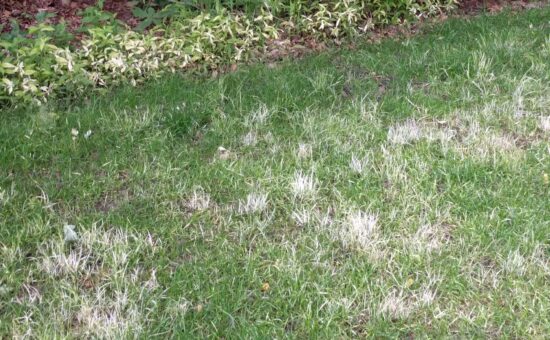
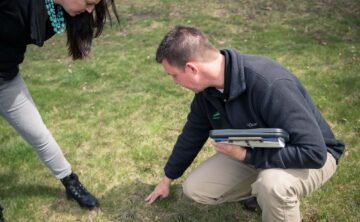
What can you expect from our lawn disease control services?
Our local experts are well-versed in the common issues found in lawns across the Twin Cities and will begin by properly diagnosing the problem. Next, they will deliver the most effective lawn disease control treatment to solve the current issue and prevent future problems.
With Rainbow’s Lawn Disease Control Service, our experts will:
- Properly diagnose your lawn disease or insect problem.
- Formulate a plan to target your lawn’s specific disease or insect problem.
- Recommend curative treatments to correct existing problems and preventative treatments to keep the problem from worsening.
- Provide quality lawn care treatments safely and effectively.
We also offer a full suite of lawn care solutions like lawn seeding and fertilization to keep your lawn healthy and looking great. The healthier your lawn is, the more it can withstand damage from disease, pests, and drought!
Why choose the experts from Rainbow Lawncare?
You can expect trained professionals to deliver outstanding service from phone representative to technician. Our lawn consultants have degrees in turf management or agriculture, and our technicians have the proper licenses and are passionate about their work. Additionally, we use only the highest quality products available for lawn care. Most importantly, we understand that all lawns are different, and you deserve a plan that fits your needs.
Additional frequently asked auestions about lawn diseases:
With so many lawn disease products on the market, it might seem easy to do it yourself. The products may be easy to buy, but getting the correct information can be challenging. Additionally, there is always the danger of misusing the products, which can pose a health risk to you, your family, and your pets.
Mistakes with home lawn care products can cause more problems than they solve, including burning the lawn, damaging nearby plants, or getting toxic products where you don’t want them — like your garden beds or play areas. Our highly trained experts use the highest quality products safely! What’s more, they can help you manage all aspects of your lawn’s health so you can enjoy the peace of mind of knowing it’s all handled.
To the untrained eye, it can be hard to determine precisely what’s wrong with your lawn. Is it an insect? A grub? Or is it a disease? Our experts are familiar with lawn diseases found in Minnesota, and they know how to treat them.
Common examples include:
- Powdery mildew, which first appears as a white powder or film on the grass blades, and then turns to brown patches
- Fungus problems (which account for nearly all lawn disease problems); many fungi look like a black powdery film on grass blades
- Snow molds are often seen in early spring and can appear as patches of gray or white matted turf
- Other common grass diseases include red thread, rusts, dollar spot, brown patch, and necrotic ring spot
Schedule your lawn disease control service today!


Tips for Watering Your Lawn in Minnesota
Why is watering your lawn important? Most living things require water to thrive, and your grass is no exception.
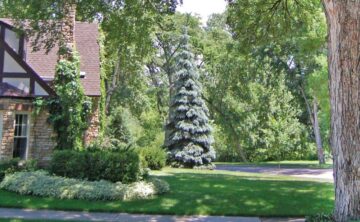
Why We Love Our Lawns: A Brief History Of American Lawn Care
America’s love affair with our lawns is as passionate as ever. However, some things have changed—including our image of the
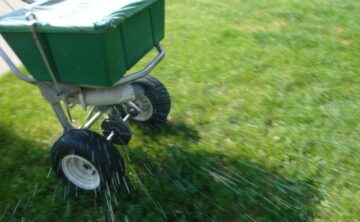
Minnesota Homeowner’s Guide to Lawn Fertilization
Fertilizing your lawn may seem like a straightforward concept, but deciding on a proper schedule of when and how much
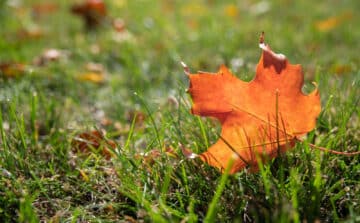
Fall Lawn Maintenance Checklist for Your Minnesota Yard
Our experts have compiled a helpful checklist to help you maintain a luscious, green lawn.



